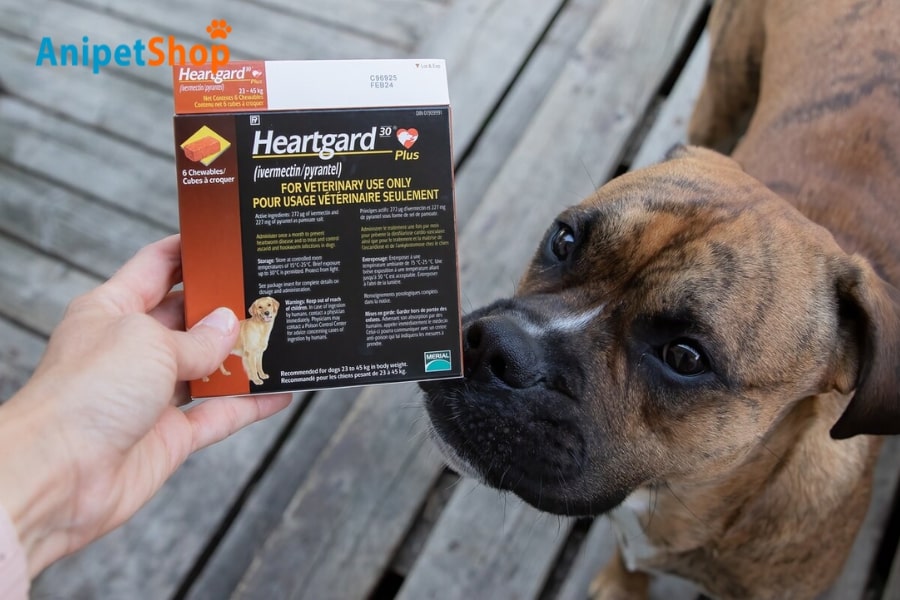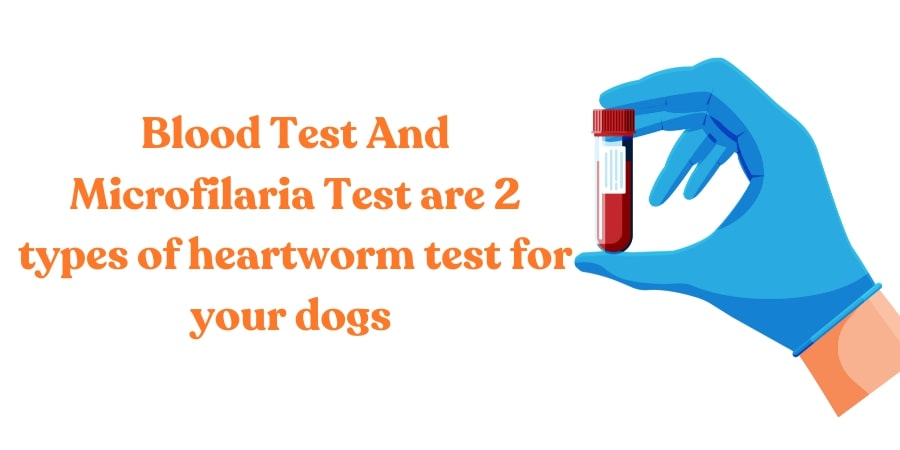Do Senior Dogs Need Heartworm Medication?
We have often heard pet owners say, “My dog is just old and doesn’t need monthly prevention anymore.” However, this belief couldn’t be further from the truth. Heartworm prevention is essential at any age, especially for senior dogs. Many pet owners mistakenly assume that older dogs are less susceptible to heartworm disease, but in reality, the risk remains just as high.
Heartworm prevention is not only crucial for protecting your senior dog but also for safeguarding the health of many dogs in your household. Parasites like heartworms, along with other intestinal parasites found in your dog’s feces, can pose a threat to both pets and humans, especially if they are infected with heartworms. That’s why it’s important to keep your senior dog’s heartworm prevention, as well as flea and tick control, up to date with a reliable vaccine.
If you’ve ever questioned whether your senior dog still needs heartworm medication, the answer is a resounding “Yes!” This article will explain why maintaining heartworm prevention in senior dogs is vital for their health and well-being. Misconceptions like thinking that heartworms only affect younger dogs can be dangerous, as older dogs are just as vulnerable to the potentially life-threatening consequences of heartworm disease.
Key Takeaways
- Senior dogs have compromised immune systems, making them more vulnerable to heartworm infections caused by parasitic worms.
- Administering heartworm medication year-round is essential to prevent severe health issues like heart failure and lung disease in senior dogs.
- Mosquitoes, which transmit heartworms, can survive indoors, posing a risk even during colder months.
- Preventive medication is more cost-effective and less complicated than treating an existing heartworm infection in senior dogs.
- Regular veterinary check-ups ensure that heartworm prevention strategies are appropriately adjusted for the specific health needs of senior dogs.

How do dogs get heartworms?
Dogs get heartworms through the bite of an infected mosquito. The process begins when a mosquito bites a dog that already has heartworms, ingesting young heartworms called microfilariae that are circulating in the dog’s blood. These microfilariae develop into infective larvae within 10-14 days inside the mosquito. When the mosquito bites another dog, it deposits the larvae onto the dog’s skin, allowing them to enter the bloodstream.
Once inside the new host, it takes about 6 to 7 months for the larvae to mature into adult heartworms, which can grow to be 10 to 12 inches long. These adult heartworms reside in the blood vessels of the lungs and, in severe cases, in the heart chambers. As they mature, they cause significant damage to the heart, lungs, and blood vessels, leading to serious health issues such as coughing and shortness of breath.
To complete the life cycle, adult heartworms release microfilariae into the dog’s bloodstream, which can then be picked up by another mosquito, allowing the cycle of infection to continue when that mosquito bites a new host.
Why are heartworms dangerous for dogs?
These foot-long parasites can lead to inflammation of the blood vessels, block blood flow, and result in pulmonary thrombosis (clots in the lungs) and heart failure. The damage doesn’t stop there—heartworm disease can also cause liver or kidney failure, further endangering your dog’s life.
The statistics are alarming: 1 in 200 dogs will contract heartworm disease each year. To put that in perspective, your dog’s risk of getting heartworm is the same as your own risk of developing cancer. Heartworm disease is now present in all 50 states, making it a nationwide concern. According to the American Heartworm Society, 7 in 10 mosquitoes carry heartworms, significantly increasing the risk of infection if your dog is not on a prevention regimen. Due to the irregularity of seasonal temperatures and the life cycles of mosquitoes, all dogs remain vulnerable to this dangerous disease.
Adult heartworms can live in a dog for five to seven years under normal conditions, contributing to the spread of the disease and causing long-term damage to the infected dog’s heart and lungs. On average, a dog may harbor 15 adult heartworms, but in severe cases, several hundred of these spaghetti-like worms can infest the heart and lungs. This high number of worms can severely compromise heart function over time, leading to a deterioration in your dog’s health and quality of life.
Heartworms are not just a minor nuisance—they are a life-threatening danger that can cause extensive damage to your dog’s vital organs and, if left untreated, can lead to death.
Remember this disease is 100 % preventable. The most effective way to combat heartworm disease is through prevention, regardless of your pet’s age!
Do senior dogs need heartworm medication?
Yes! Senior dogs do need heartworm medication. In fact, they are at a higher risk of contracting heartworm disease compared to younger dogs. As dogs age, their immune systems weaken, making them more susceptible to infections and diseases, including heartworm. Additionally, older dogs are more likely to have other health issues such as diabetes, heart failure, or cancer, which can further complicate their ability to fight off a heartworm infection.
Heartworm disease is especially dangerous for senior dogs, as it can put significant strain on their already vulnerable hearts and lungs. The presence of other health conditions can make treatment more challenging and increase the risk of complications. Even if your senior dog spends most of their time indoors and only goes outside briefly, they are still at risk. Mosquitoes, which carry heartworms, are present in all 50 states and can easily bite your dog during those brief moments outside or even indoors.

In conclusion, every dog, regardless of age, size, or lifestyle, is at risk of contracting heartworm disease. For senior dogs, the need for heartworm prevention is even more critical, as their age and health conditions make them more vulnerable to the severe effects of this disease.
Therefore, it is essential to keep your senior dog on a consistent heartworm prevention regimen to protect their health and well-being.
For further understanding, you can learn more about protecting puppies from heartworm disease.
Do senior dogs need heartworm medication in winter too?
Yes, senior dogs do need heartworm medication during the winter as well. While it’s true that there are fewer mosquitoes in the colder months, the risk of heartworm infection doesn’t disappear entirely. Many pet owners mistakenly believe that heartworm prevention is only necessary during the warmer months, but this misconception can leave dogs vulnerable to infection, because:
- Heartworms live year-round inside infected dogs, cats, wolves, coyotes, and other hosts.
- Mosquitoes are becoming more resistant to cold temperatures, with some able to survive winter as adults. Climate change and urban heat contribute to larvae development in mosquitoes for longer periods of the year.
- Most heartworm preventatives work retroactively, killing larvae acquired in the past months. They are most effective within the first 30 days of infection; as the worms mature, they become more difficult to eliminate with heartworm prevention medications.
All in all, it’s vital to continue heartworm prevention for senior dogs year-round, including during the winter. Their age and potential health issues make them more susceptible to severe complications, so maintaining a consistent prevention regimen is essential to protecting their health.
A real-life example of the importance of year-round heartworm prevention
Picture this: a 9-year-old Labrador named Bella comes in for her regular check-up, happily wagging her tail and full of energy. Her owner mentions that Bella has been a little slower lately and has developed a mild cough every now and then, but otherwise, she seems perfectly fine. Bella still eats her meals with enthusiasm, goes to the bathroom regularly, and spends most of her time indoors, where she feels safe and comfortable.
During the check-up, the vet examines Bella thoroughly and, as part of the routine senior health screening, decides to run a heartworm test. The test results reveal something unexpected—Bella has heartworms in her bloodstream. These worms are already reproducing, even though Bella hasn’t shown any serious symptoms. The news comes as a shock to her owner, who can’t understand how this could have happened since Bella spends most of her time indoors and has always seemed so healthy.
This is a classic situation we see in veterinary clinics across the country. This story shows why it’s so important to give your dog heartworm prevention all year round. Even indoor dogs who seem healthy can get heartworms, so regular prevention is the best way to keep them safe.
What is the best way to protect your senior dog from heartworms?
To protect your senior dog from heartworms, make certain you administer a heartworm prevention medication year-round, are available in various forms, such as monthly chewable tablets, topical “spot on” treatments, and an injectable option that is administered every 6 or 12 months.. Additionally, have your dog tested for heartworms annually to catch any potential infections early. These two steps are essential in safeguarding your dog’s health and preventing heartworm disease.
Step 1: Administer heartworm prevention year-round
A wide range of heartworm preventives is available, making it easier to find an option that suits both your dog’s needs and your lifestyle. Most heartworm prevention medications come in the form of chewable tablets or pills, which are typically given once a month. Some common oral medications are NexGard® and Advantage Multi®. These oral options often come in flavors that dogs enjoy, making it simple to keep them protected.
For dogs that struggle with oral medications, topical treatments offer an effective alternative. These liquid medications are applied to the skin, usually between the shoulder blades, and provide systemic protection against heartworms for a month. They are absorbed through the skin, offering a convenient option for dogs who resist taking pills. Some common topical medications are Revolution® and Sentinel® Spectrum.
For those who may find it challenging to remember monthly doses, injectable heartworm preventives are a great solution. ProHeart®6 provides six months of protection, while ProHeart®12 lasts an entire year. These injections, administered by a veterinarian, release the medication slowly over time, ensuring your dog remains protected without the need for monthly reminders.

Step 2: Test Your Dog for Heartworms Once a Year
While heartworm medications are highly effective, no prevention method is 100% foolproof. A single missed dose or a late administration of a monthly medication can leave your dog vulnerable to infection.
The most common heartworm test is a blood test that detects the presence of adult female worms. However, in some cases, your vet may also recommend a microfilaria test, which looks for baby heartworms in the bloodstream. It’s important to remember that it takes about six months for heartworm larvae to mature into adults, meaning early infections might not be detected by these tests. As a result, a negative test today could become positive at the next annual check-up if the infection was too new to be detected initially.

Yearly testing, or retesting in six months for dogs with an initially negative result, ensures that any heartworm infection is caught as early as possible. Early detection allows for prompt treatment, reducing the time the worms have to damage your dog’s heart and lungs.
The importance of testing before starting a preventative
If your dog is not tested and is already infected with adult heartworms, the preventative will not eliminate the existing adult worms, leaving your dog at risk of developing severe symptoms as the infection progresses. Additionally, administering heartworm preventatives to a dog with adult heartworms can be harmful or even deadly.
Moreover, if your dog is over six to seven months old and has never been on a year-round heartworm prevention regimen, a heartworm test is essential. This test not only helps detect the infection early, allowing for timely treatment but also ensures that it is safer to administer the preventative. This is important because certain heartworm prevention medications, while part of the treatment for heartworm-positive dogs, can occasionally cause an anaphylactic allergic reaction in dogs with a high number of circulating microfilaria. Therefore, testing your dog for heartworms once a year is a vital step in safeguarding their health and ensuring the effectiveness of preventative measures.
The importance of yearly testing even if your dog is on a heartworm preventative year-round
Annual testing is essential, even if your dog is on monthly heartworm prevention year-round, to ensure that the prevention program is effective. While heartworm medications are highly effective, no method is 100% foolproof. Missing or delaying just one dose of the preventative can create a vulnerable window where your dog could become infected. Additionally, some dogs may spit out, rub off, or vomit up their heartworm medication without you realizing it, further increasing the risk of infection.
Yearly testing allows you to promptly detect if your dog has become infected despite being on a preventative regimen. This proactive approach helps ensure your dog’s health and the ongoing effectiveness of the heartworm prevention program.
What happens if my senior dog tests positive for heartworms?
If your senior dog tests positive for heartworms, the veterinarian will typically confirm the results with a microfilaria test or a second heartworm test. Additionally, the vet will assess your dog’s condition to determine the severity of the infection. This assessment may include a thorough physical exam, chest X-rays, or other specialized tests such as an echocardiogram.
Once the veterinarian understands the extent of your dog’s heartworm disease, they will develop a heartworm treatment plan. This plan usually involves administering multiple medications over several months. Heartworm preventatives are often part of the treatment protocol, but eliminating adult worms typically requires several doses of a more potent injectable anti-parasitic drug called melarsomine.

Treating heartworm disease can be risky and challenging, especially for older dogs. The dying worms can cause significant inflammation and pulmonary thromboembolisms (blood clots in the lungs). Additionally, melarsomine injections can be painful, and your dog will need to be on strict rest for several months. However, since heartworms are life-threatening, treatment is usually the best course of action.
It’s also important to note that treating heartworm disease is expensive, often costing significantly more than preventing it.
Understanding the financial implications of heartworm treatment can help emphasize the importance of prevention.
For all these reasons—the danger posed by heartworms, the challenges of treatment, and the high cost—prevention is the best approach when it comes to heartworm disease. Therefore, it is crucial that your senior dog receives heartworm medication year-round and undergoes yearly heartworm testing.
FAQs
Are There Any Side Effects of Heartworm Medications for Senior Dogs?
Yes, heartworm medications can cause side effects in senior dogs. Always talk to your vet to ensure these medications are safe. Discuss managing side effects, consider other medication options, and focus on your senior dog’s overall health during vet visits.
Can Heartworm Medication Interact With Other Medications My Senior Dog Is Taking?
Yes, heartworm medication can interact with other medications your senior dog is taking. Always consult your vet for health check-ups, potential drug interactions, dosage tweaks, and ongoing medication monitoring. This ensures your dog’s safety and well-being, especially when combined with monthly heartworm prevention.
Does a 15-year-old dog need heartworm medicine?
They still need heartworm prevention because ticks will latch onto an old dog just as easily as a young one. Mosquitoes can bite them too, regardless of age.
In conclusion, ensuring that senior dogs receive year-round heartworm medication is essential for their well-being. While heartworm disease poses risks to dogs of all ages, the potential complications can be particularly severe for older pets. By prioritizing prevention and regular testing, pet owners can help protect their senior canine companions from this potentially life-threatening condition and ensure they enjoy a happy and healthy life for years to come.
Conclusion
Senior dogs absolutely need heartworm medication, as they remain vulnerable to the same risks as younger dogs, if not more so. Heartworms pose a life-threatening danger, causing severe damage to the heart, lungs, and other vital organs. The risk of infection persists year-round, making consistent prevention essential. Even a single missed dose can leave your dog exposed, and older dogs with weakened immune systems are particularly susceptible to complications from heartworm disease.
Yearly testing, combined with a year-round prevention regimen, is crucial for catching any infections early and ensuring the health and safety of your senior dog. Whether through chewable tablets, topical treatments, or long-lasting injections, maintaining a strict prevention plan can save your dog from the severe consequences of heartworm disease. By staying vigilant and proactive, you can protect your senior dog’s health, ensuring they continue to live a happy and healthy life.
If treatment becomes necessary, learn how to support your dog through the process: https://anipetshop.com/dog-care/caring-for-your-dog-during-heartworm-treatment
References:
-
Hanelt, B., Pfanschmidt, J., Nijhof, A. M., Bauer, C., & Pfeffer, M. (2021). Efficacy of fluralaner (Bravecto® Plus spot-on for cats) against induced single and multiple infestations with Ctenocephalides felis and Ixodes scapularis on cats. Parasites & Vectors, 14, 684. https://doi.org/10.1186/s13071-021-05104-7
-
Lobetti, R., Brianti, E., Cassini, R., Calderini, P., Furlanello, T., Genchi, C., … Antognoni, L. (2021). Tick-borne pathogens in dogs living in different areas of Italy: Seroprevalence and risk factors. PLOS ONE, 16(8), e0255847. https://doi.org/10.1371/journal.pone.0255847
-
Murphy, M., Six, R. H., Crane, M., Egan, J., & Thompson, L. A. (2019). Evaluation of the efficacy and safety of fluralaner topical solution (Bravecto®) for the treatment of ear mite (Otodectes cynotis) infestations on cats presented as veterinary patients in the USA. Parasites & Vectors, 12, 484. https://doi.org/10.1186/s13071-019-3702-6
-
American Heartworm Society. (n.d.). Heartworm basics. https://www.heartwormsociety.org/pet-owner-resources/heartworm-basics
Lily Watson is an author specializing in veterinary care in Australia. With a profound passion for animal welfare and a solid foundation in veterinary science, Lily has dedicated herself to disseminating valuable knowledge and information for both pet owners and professionals in this field.

